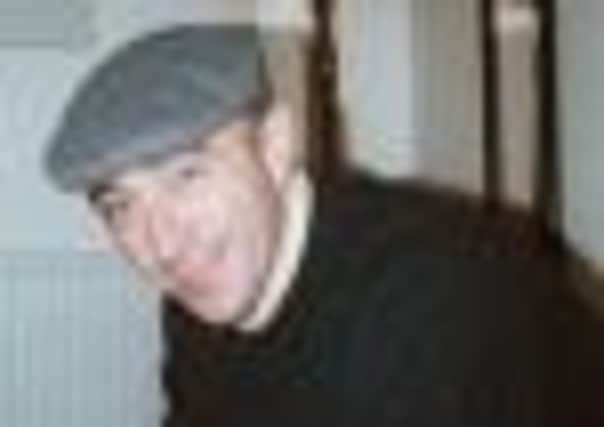Obituary: Alastair ‘Ally’ Clark; Scotsman journalist, broadcaster and musician who valued wit, grammar and friends


SOME people breathe life into whatever they do, wherever they are. Ally Clark, who died on Sunday after a short illness, brought that quality to work at The Scotsman for more than 50 years, to his trumpet, sax and piano playing, his broadcasting on music, his writing, his golf, his friendships – especially with musicians – and his family. He did it in a wry, understated, way. To be on the same wavelength was to value wit above the more often boisterous comedy of a newsroom.
It was also to admire the unflappable professionalism of a journalist who took the one-time classic route from teenage copy boy to a series of senior editorial positions, including chief sub-editor and mastermind behind The Scotsman’s 1980s move to computerisation, on the only paper he worked for.
Advertisement
Hide AdAdvertisement
Hide AdWhen he finally left The Scotsman in 2008 – his Peter Pan-like ability to seem much younger than he was confusing colleagues to the end – I wrote in the traditional front-page spoof for such an event that “more than 3,000 cursing journalists have suffered from his meticulous attention to grammar, spelling, censorship of rude words and insistence on correct titles for monarchy… he was the only man who cared whether diah…dior… diarr… whatever, was spelled correctly.”
That was an affectionate way of saying thousands of journalists over the years had been grateful for Ally’s ability to spot errors of omission and commission, and to suggest changes.
He was also a master of headline writing, especially during what he called “the best time of my journalistic life” when in charge of the Opinion pages – columnists and editorials – of The Scotsman in the latter stages of his career.
He said recently: “My best headline? As an ardent Nationalist all my life, it has to be ‘Yes, it’s time’ on an editorial before the Holyrood election that saw the SNP sweep to power.” When checking facts and comparing notes with former colleagues while preparing this obituary, we frequently found ourselves laughing out loud at some memory of Ally at work, relaxing with a dram, at the piano, or discussing music, cricket and politics. As a man whose specifications for his own, secular, funeral and wake include “cheap white wine, tired sandwiches and lukewarm sausage rolls because that’s what people expect”, he would have enjoyed the laughter he left behind.
Alastair Clark was brought up in Saughtonhall, along with his sister Aileen, by his widowed mother who, he said, “scrimped and saved” to send him to Daniel Stewart’s College where, among other things, he was a member of First XI cricket team from the age of 14.
Determined to become a jazz musician, he left school in 1954, becoming a member of Bob Craig’s Jazz Band, playing all over Scotland. That included a full-house Usher Hall as warm-up for Chris Barber. While waiting for a place at Edinburgh University, he joined The Scotsman as a copy boy, was sent on a course to learn shorthand and typing, and stayed for more than half a century except for national service.
When he returned, night work on the paper meant abandoning his jazz career. Promotion was rapid – sub-editor in charge of Scottish news, editor of the Financial Scotsman pull-out section, chief financial sub-editor, deputy chief sub-editor, chief sub-editor, all while, from the mid-Sixties, writing a music column. (The authoritative influence of that column, and Ally’s broadcasting, is described in detail by Jim Gilchrist.)
Although describing his appointment to oversee computerisation as “the blind leading the blind”, Ally did the job as successfully and unflappably as he did most others. It was also, he believed, crucial when, during the worst period of his career on The Scotsman, the then management insisted on editorial executives signing a “no strike” agreement.
Advertisement
Hide AdAdvertisement
Hide AdHe refused, but was “the only one in the building who knew how the computer system worked”. Frosty relations with management eased when Magnus Linklater became editor in 1988 and Ally was appointed night editor where, he believed, he did some of his best writing.
To the end, he remained a consummate, in the best sense, pedant, in his proof-reading work for publisher Birlinn.
He is survived by his wife Sandra and daughter Rebecca, by son Michael and daughter Annie from his first marriage to Mary, and grandchildren Jamie and Arran.
FORDYCE MAXWELL